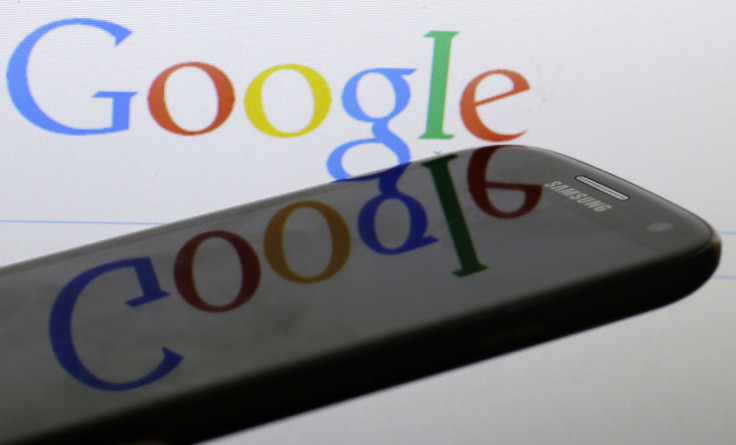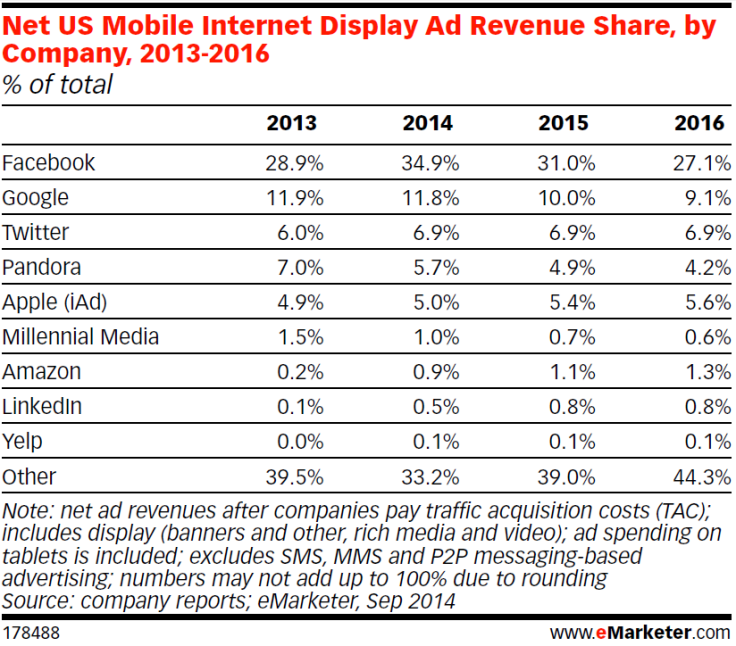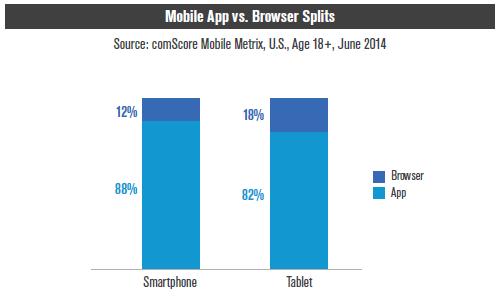Google Tweaks Search Results To Boost The Mobile Web As Apps Take Over

Google is doing its best to defend the mobile Web against the onslaught of mobile apps that increasingly fulfill users' everyday needs. The search giant today made a small tweak to its mobile search results with potentially big implications: a new label that designates which pages are "mobile-friendly."
To get that designation, a Web page must be optimized for the small screen (meaning that it can't use software such as Flash, which doesn't render on many phones), providing readable text without zooming, being fully viewable without zooming or horizontally scrolling and placing links far enough apart to easily tap correctly. In other words, it must look as good on a 4-inch screen as it does on a 24-inch monitor.
By giving a boost to mobile websites, Google is throwing its considerable weight in the mobile apps vs. mobile Web debate that has been raging for years but has tipped strongly in favor of apps. Facebook made the call to switch focus from the mobile Web to its mobile app three years ago, and today it has the biggest mobile display ad business in the world. Google is still dominant in mobile search, but its display business is still very Web-based; a shift to apps takes users largely out of Google's world.
"If you're using something repeatedly on mobile, you're much more likely to use the app," Roger Entner, Recon Analytics' principal analyst, said. "If you're using it once or discovering it for the first time, you're much more likely to use the mobile Web."
Initially, this will only cosmetically affect websites' search results. But it may have a larger impact on search results in the future, as it is also being tested as a criterion for determining a website’s rank on Google.
The shift from desktop to mobile search has been a painful one for Google, which has been facing a decline in mobile search ad revenue over the past couple of years. Google's share of the $8.7 billion mobile search ad market is expected to shrink from 68.9 percent in 2013 to 64.1 percent by 2016, according to eMarketer.
While Google is the starting point for a lot of people on the Web, that's not the case in mobile, where users tend to go to familiar apps built for a purpose such as Yelp, which is expected to rake in $119.4 million in 2014 search revenue, as well as a number of smaller websites. But Google is also taking a hit due to increased spending with mobile display ads as marketers look to grab app user eyeballs.
“Instead of people going straight to Google, they’re going to Yelp or Kayak for travel search, rather than going straight to a browser like you would with a desktop,” Dan Marcec, eMarketer's public relations director, said. “That behavior is changing a lot and it has become a challenge for Google.”

It’s an unfavorable position for Google since its dominance in the mobile search ad space doesn’t translate to display ads. In that market, Facebook holds the majority share of mobile display ad spending at 34.9 percent in 2014. Unlike mobile search ads, the mobile display ad market is becoming increasingly fragmented by competition from Twitter, Pandora, Apple, Amazon and more.
Driving this trend is a number of factors, including the higher engagement time users spend with apps vs. mobile browsing. On smartphones, users spend 88 percent of their time in a mobile app instead of a mobile browser, according to comScore data from June. And if those users are spending the majority of their time in apps, it means even smaller search revenue for Google.

It's a trend that Google may have difficulty slowing or reversing, even with its seemingly heavy-handed approach to tweaking its search results.
"The monetization of the whole experience is a lot easier for an app and its owner than on the Web," Entner said. "On the Web, it's Google who makes the money. In the app, for all intents and purposes, it's the app owner."
That’s not to say that the mobile Web is going away anytime soon, but search is expected to face increased competition from display ads on mobile in the future. Mobile display ad spending is expected to grow to $9.65 billion in 2014, while search will grow to $8.7 billion by the end of 2014, according to eMarketer.
© Copyright IBTimes 2025. All rights reserved.





















